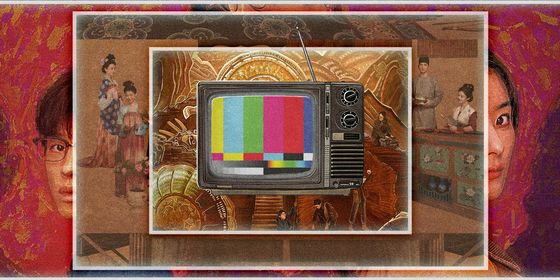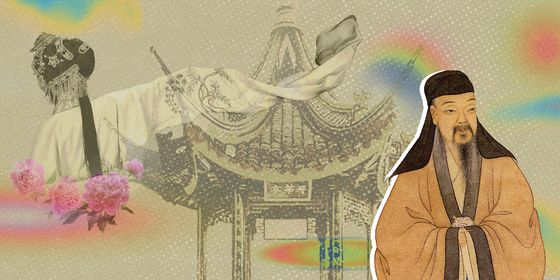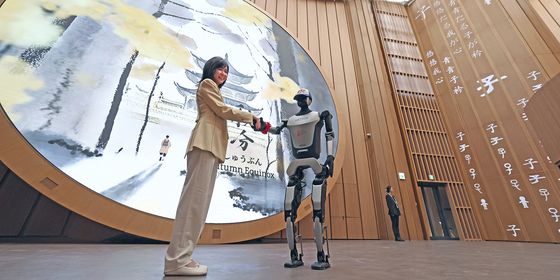It was the only thing the genius Three Kingdoms strategist couldn’t do
Second-century military strategist Zhuge Liang has been depicted as being “so wise that he was practically a demon”, at least according to writer Lu Xun. Fictionalized in the 14th-century novel The Romance of the Three Kingdoms, one of China’s “Four Classics,” “Zhuge” has since become a byword for wisdom in China.
Given the renown of the character, it’s a tall order for any actor to play Zhuge without fans criticizing one detail or another. A recent TV series may have found the answer—with a Zhuge who happens to know English.
Growling Tiger, Roaring Dragon has been on screens for more than a month. A sequel to The Advisors Alliance, it features the military career and life of politician-strategist Sima Yi, who also lived during the Three Kingdoms era. Though the show was rated 8.2 out of 10 on Douban.com, the first season was not widely watched; the series is now airing on iQiyi.
Last week, though, the show suddenly went viral. Actor Wang Luoyong, who plays Zhuge Liang, posted a video to his Weibo account of himself reading the English version of Zhuge’s famous essay “Northern Expedition Memorial.”
The “Northern Expedition Memorial” is a staple of Chinese middle-school textbooks, and students are usually required to be able to recite it in full. The memorial was written in 227 and recorded in Zhuge’s biography in the The Records of Three Kingdoms (a third-century historical text, not to be confused with the novel). At that time, the State of Shu, for which Zhuge was chancellor, was recovering from its defeat against the State of Wu in 222. Zhuge felt that they had to be aggressive towards their rivals in order to survive. So he decided to campaign against another strong rival, the State of Wei in the north, in a series of “Northern Expeditions.” Before setting off, Zhuge wrote a memorial, explaining the reasons for the expedition and offering personal advice to the emperor on how to critically take advice and reasonably use his personnel to ensure smooth governance. The essay has been cited by generations of literati as evidence of Zhuge’s loyalty and determination.
Stories about the Three Kingdoms are some of the most widely adapted historical works in China and, so far, most adaptations have selected handsome, well-known actors to play Zhuge. However, their receptions have been mixed. The most—perhaps only—accepted Zhuge was played by veteran actor Tang Guoqiang in the 1994 TV show Romance of The Three Kingdoms. His portrayal is regarded as the standard by which all subsequent Zhuge Liangs are compared.
In the movie Red Cliff, Zhuge was played by Taiwanese-Japanese heartthrob Takeshi Kaneshiro. But Zhuge lovers didn’t buy it, damning him with faint praise as “the handsomest Zhuge Liang.”
In 2008, the 95-episode show Three Kingdoms hit TV screens. This time, the director chose actor Lu Yi (In the Name of the People), who is also handsome and has a good image among audience. But Lu also received criticism—for speaking his line like he was reciting an essay, being “too green,” and even “too creamy” (meaning a man who is pretty and not manly enough).
Actor Lin Feng also played Zhuge in time-traveling comedy Three Kingdoms RPG in 2011. Since this adaption was already so offbeat, most people choose to pretend that it’s not Zhuge Liang they’re seeing on the screen.
So, what about the Zhuge Liang in Growling Tiger, Roaring Dragon, who actually recites an essay? Netizens have called his performance “a clear stream (一股清流),” meaning something that’s tasteful and stands out from other, vulgar examples. And it can’t be denied that his beautiful, English-language viral delivery helps things. Some reactions tell the fan story:
As I watched this last night, I thought I was watching Game of Thrones
Truly…I’m speechless!…The cadence, the sonorousness and force! It’s like the narrator to a Hollywood blockbuster!
With his unorthodox move, Wang has updated the portrayal of the legendary statesman and created a Zhuge that can’t possibly be compared with previous versions on TV—now that’s a genius ploy of which the real Zhuge would have approved.












